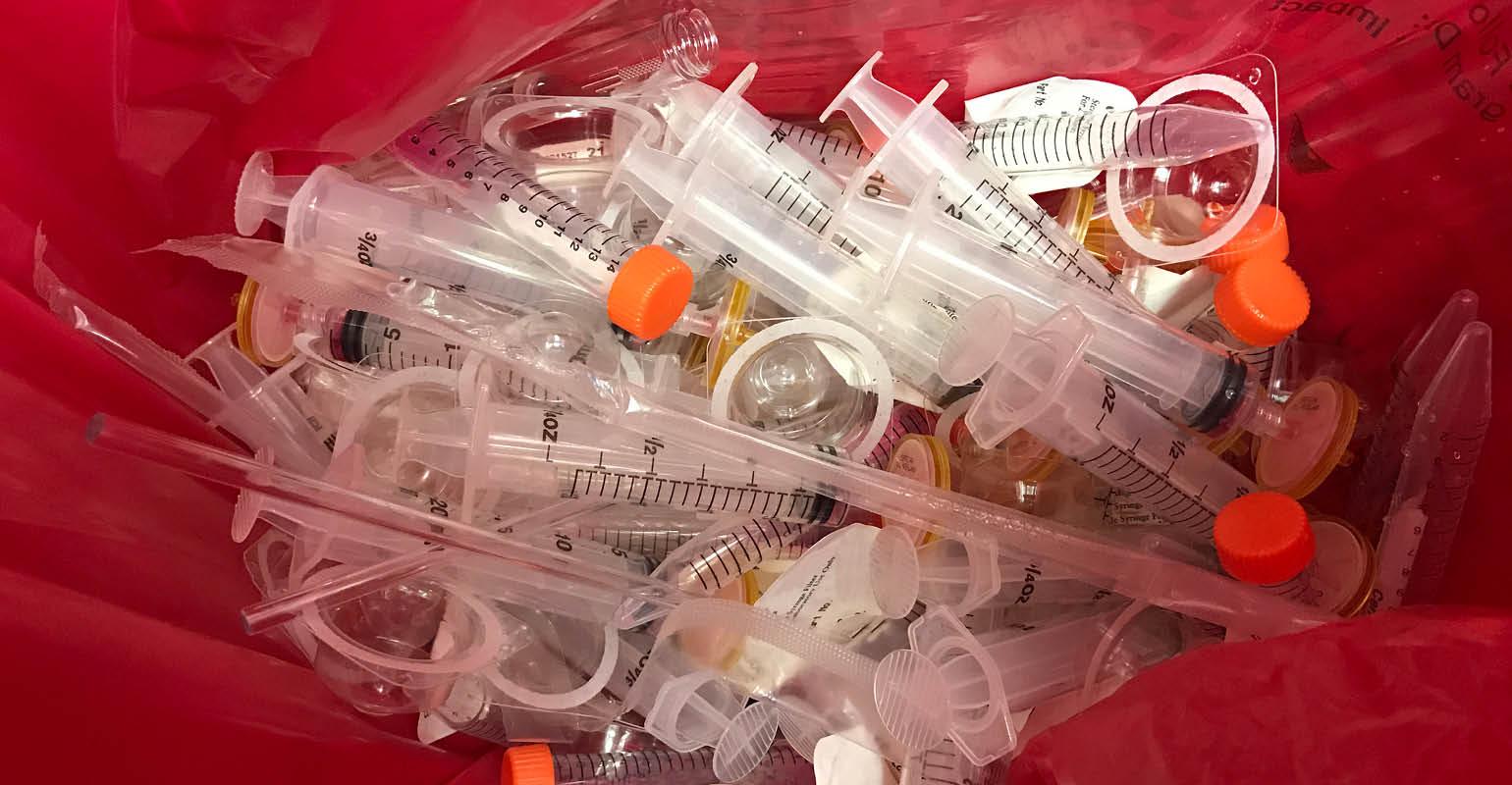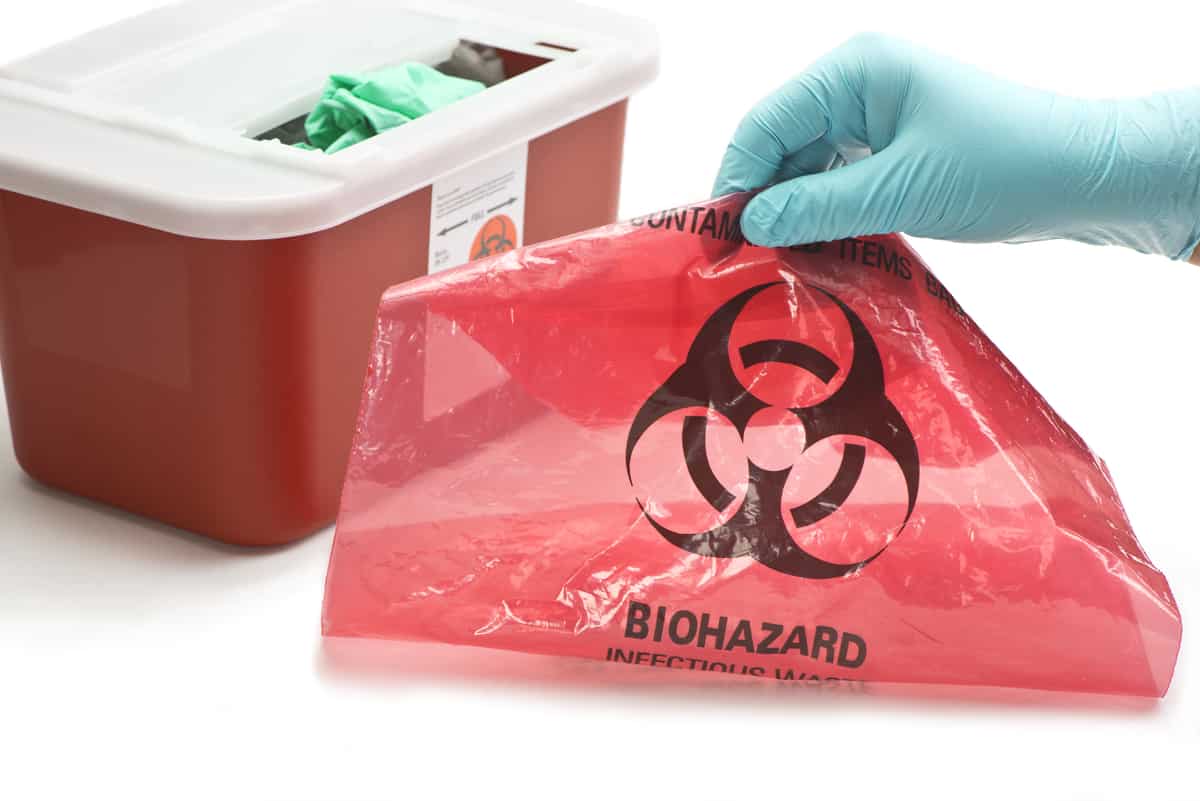Neighborhood Care: Seamless and Reliable Medical Waste Removal Near Me
Remain Ahead of Rules: Professional Suggestions on Medical Waste Disposal
In a world where the medical care sector is constantly advancing, it is crucial for clinical centers to remain ahead of policies when it involves the proper disposal of medical waste. With rigid standards and constant governing adjustments, it can be testing to browse the intricacies of this procedure. With professional guidance, facilities can ensure compliance and mitigate risks associated with improper waste disposal. From understanding the different groups of clinical waste to carrying out the ideal collection and partition techniques, this conversation will certainly give workable pointers and useful insights to help facilities remain in advance of laws in the ever-changing landscape of clinical waste disposal.
Comprehending Medical Waste Categories
Comprehending medical waste categories is essential for correct disposal and management in medical care facilities. Clinical waste describes any waste created by healthcare tasks that might position a danger to public health or the setting. It is essential to classify medical waste properly to ensure its secure handling, therapy, transport, and disposal.
There are several groups of medical waste that health care centers need to be aware of. One of the most common groups consist of transmittable waste, pathological waste, sharps waste, pharmaceutical waste, and chemical waste. Each category has particular standards and laws for its proper administration and disposal.
Pathological waste refers to human tissues, organs, or body parts that require special handling and disposal. Drug waste comprises expired, unused, or contaminated medicines that require mindful handling and disposal.
Staying Up-To-Date With Regulatory Changes
Staying existing with governing modifications is crucial for medical care centers to make certain conformity and appropriate administration of medical garbage disposal. medical waste removal services. With guidelines continuously developing, it is important for healthcare facilities to stay current to prevent penalties, penalties, and possible injury to the setting and public health and wellness
To stay in advance of regulative adjustments, medical care facilities should develop a system for monitoring and monitoring updates. This can be done by signing up for regulatory e-newsletters, going to conferences and workshops, and actively getting involved in industry organizations. Furthermore, centers need to mark a personnel or group accountable for remaining notified and disseminating info to relevant stakeholders.
Normal interaction with governing companies is additionally essential. Medical care facilities must establish partnerships with local, state, and federal firms to ensure they recognize any modifications in regulations that may influence their waste management methods. This can be done via regular meetings, engagement in public comment periods, and aggressive engagement with regulative firms.
Furthermore, health care facilities should take into consideration partnering with waste administration companies that concentrate on clinical waste disposal (medical waste disposal services with WasteX). These companies are usually well-versed in the current regulations and can offer advice and assistance to guarantee conformity
Implementing Appropriate Collection and Partition Techniques
To properly handle clinical garbage disposal, medical care facilities need to develop appropriate collection and partition techniques in conformity with governing standards. Applying these methods ensures the risk-free handling and disposal of potentially harmful products, secures the atmosphere, and lessens the threat of injuries and infections to healthcare workers and the public.
Proper collection and segregation methods involve the use of designated containers and labeling systems. Health care facilities ought to supply clearly labeled containers for various kinds of clinical waste, such as sharps, contagious waste, pharmaceutical waste, and non-hazardous waste. These containers need to be color-coded and plainly significant to stay clear of confusion and promote very easy recognition.
Furthermore, health care facilities need to educate their personnel on the appropriate treatments for accumulating and setting apart medical waste. This consists of informing them on the different sorts of waste, the ideal containers to utilize, and the value of following standards and guidelines. Normal training sessions and correspondence course must be conducted to make certain that personnel participants remain current on finest techniques.
In addition, health care centers ought to establish a system for normal collection and disposal of medical waste. This might involve partnering with licensed waste monitoring companies that concentrate on medical garbage disposal. These firms will make certain that the gathered waste is carried and disposed of in conformity with governing requirements.
Selecting the Right Disposal Methods

Incineration is just one of the most efficient and typical techniques for taking care of particular types of medical waste, such as pathological waste and sharps. It involves the controlled combustion of have a peek at these guys waste at high temperatures, decreasing it to ash. Nevertheless, incineration can launch dangerous toxins right into the air and add to air pollution.

Various other disposal approaches consist of chemical treatment, microwave therapy, and landfilling. Chemical therapy entails making use of chemicals to reduce the effects of the waste and decontaminate. Microwave therapy utilizes microwave power to warm and decontaminate the waste. Landfilling includes burying the waste in a marked landfill area (medical waste disposal services with WasteX). Landfilling should be the last resort due to the possible risk of contamination to dirt and groundwater.
Making Certain Compliance Via Documents and Training
After meticulously taking into consideration the ideal disposal methods for clinical waste, medical care facilities have to make sure conformity with regulations and decrease ecological effect by implementing reliable paperwork and training treatments. This action is vital in keeping a sustainable and safe atmosphere for both healthcare workers and the public.

Training is just as important in making sure compliance with laws. Healthcare workers that handle medical waste must obtain suitable training on waste partition, taking care of, and disposal procedures. This training must cover subjects such as the proper use individual safety equipment, identification of different sorts of waste, and the proper disposal approaches for each waste classification. By giving comprehensive medical waste disposal services with WasteX training, healthcare facilities can equip their personnel to make enlightened choices and minimize the risk of improper garbage disposal.
Conclusion
Finally, staying in advance of laws in clinical garbage disposal dig this is critical for medical care centers. medical waste removal. Understanding the various categories of medical waste, remaining upgraded with regulative changes, implementing proper collection and partition techniques, selecting the suitable disposal methods, and ensuring compliance with paperwork and training are all important actions. By complying with these guidelines, medical care companies can efficiently dispose and take care of of medical waste in a safe and liable way
From understanding the various classifications of clinical waste to implementing the appropriate collection and segregation approaches, this discussion will certainly supply important understandings and actionable pointers to aid facilities remain ahead of laws in the ever-changing landscape of clinical waste disposal. - medical waste disposal services with WasteX
The most typical groups include infectious waste, pathological waste, sharps waste, pharmaceutical waste, and chemical waste. Health care centers should offer plainly classified containers for different types of medical waste, such as sharps, transmittable waste, pharmaceutical waste, and non-hazardous waste. Healthcare facilities need to establish a detailed system to videotape and track all aspects of medical waste disposal, including types of waste produced, amounts, and disposal methods utilized. Health care workers that take care of clinical waste needs to get ideal training on waste partition, dealing with, and disposal procedures.